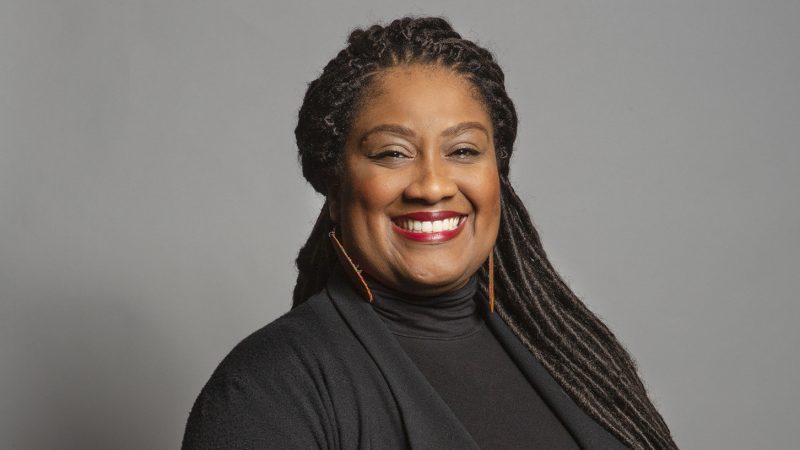
In our first ever Year 7 history class, my teacher, Mr Smart, told us to write down the following phrase: “We study the past to live the present with an eye on the future.” Why do we study history? Because if you don’t know where you come from, you don’t know where you are going. It is as simple as that. And when it comes to British history, we are not given a complete picture – because Black history is often missing.
According to a survey by the Black Curriculum, 86% of people in the UK learnt about the Tudors at school but less than 10% learnt about the role of slavery in the British industrial revolution. Hence, Black History Month. To adapt the logic of the Black Lives Matter movement: Black History Month is the month when we say that Black history matters. We are not saying that only Black history matters. We know all history matters. We just need to recognise that Black history is British history.
Like most people who have grown up in Britain over the past century, I never learnt Black British history in school in any meaningful way. Any learning I did do was during frequent visits to the Brixton library. The most popular narratives of Black figures in history remain focused on the US civil rights struggle and figures like Martin Luther King and Rosa Parks. These international perspectives are important, as Martin Luther King himself said: “An injustice anywhere is an injustice everywhere.” This is something we saw more clearly than ever with the death of George Floyd sparking global outcry.
However, the UK has its own rich civil rights struggle and we need to make sure that British children learn about and understand this. On a personal level, it’s extremely damaging not to see yourself reflected in your own history. That is partly why I want children in our country to learn about figures like William Cuffay, Mary Seacole, C. L. R. James, Claudia Jones and Olive Morris.
We also know that history is always written by the victors. That is one obvious explanation for the status quo. The historical amnesia surrounding our country’s own civil rights struggles has a pretty blatant function in our political discourse: obscuring the past victories of the oppressed and marginalised to prevent a repeat. Very few students learn about events like the Bristol bus boycotts or the battle of Lewisham.
Decolonising our curriculum is as much about class as it is race. In school, other notable gaps in my history lessons included the miners’ strikes, the poll tax riots, and the accomplishments of trade unions. The attempt to put Black history on the curriculum is the attempt to put the history of working-class struggles on the curriculum.
I worry that there is an ideological reason behind the resistance to teaching the history of colonialism and working-class movements in schools. If working-class kids learn about movements for change and how they persevered to challenge injustice, what’s to stop them from recognising parallels with what’s going on in the present? Worse still, what is to stop them understanding their power as citizens and putting the lessons of the past into practice?
With the government actively trying to constrain the teaching of anti-capitalism and the equalities minister openly condemning the teaching of critical race theory in schools, this couldn’t be more important. The Tories’ recent tilt towards censorship tells us the same thing as their brittle rebuttals of the very concept of Black history in last week’s House of Commons debate: they are on the back foot with this.
No subject has received more signatories for parliamentary petitions than getting Black history taught as part of our national curriculum. As we saw when the statues started coming down, people will not wait forever for them to do the right thing. Another commission to ‘look into’ racial inequality, or platitudes about how much ‘better’ things are, are just not good enough. To quote Streatham native and rapper Santan Dave, “least racist is still racist” – and we need to challenge racism however and wherever we see it.
Black History Month is a means to an end. And that end is nothing less than giving everyone in the country a clearer picture of our collective past. That’s why Black history cannot be an afterthought tacked on to the end of a lesson or squeezed into one day, week or even month. Too much of the burden currently falls on the shoulders of busy teachers who have the impossible task of carving out extra time to teach it from an already full schedule. That is why the government should take a lead from our brilliant teachers and organisations like the Black Curriculum, the Coalition of Anti-Racist Educators and the Black Educators’ Alliance and include it in the curriculum.
Confronting the history of slavery and empire is not about past recrimination. We need to address our shameful past and shameful present in order to look to a future of racial equality. Nobody is born racist but if we are going to end racism, we have to be willing to confront this to inform and inspire the next generation. Racism is ignorance, and what is education if not the absence of ignorance?
A popular narrative about those who challenge racism and who highlight the wrongs of the past is that we do not love our country. But true love for your country is wanting to make it the best place in the world for all people to live, no matter the colour of their skin. If we are going to do this, we must teach Black history in schools this month and every month.




More from LabourList
Antonia Romeo appointed to lead civil service as new Cabinet Secretary
‘If Labour is serious about upskilling Britain, it must mobilise local businesses’
Stella Tsantekidou column: ‘What are we to make of the Labour Together scandal?’